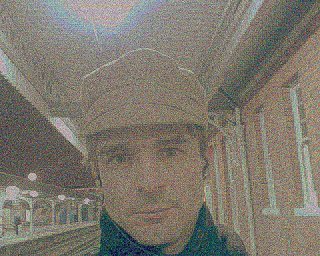Power comes into evidence through actions, reactions and interactions. It exists in relations that might be described as ‘relations of force’.
Organisation is a particular structure of relations and of actions, reactions and interactions that grow in response to contingencies and concrete events.
By following Foucault’s dictum to ‘cut off the king’s head’, whilst at the time applying that approach to the study of formal political settings, we can investigate how power works at the micro-level in the interactions and relations that exist within the political party and its processes.
I wish to bring these ideas together with an understanding of power in a Weberian sense as something that, even if it begins with individuals, gathers an inevitable structural logic as ‘relations’ become organisation and process and as the organisation grows. Using this, we can develop an understanding of how an institution acts as a kind of regulator and distributor of power through its structures and how that intersects with the relations within it (and that run across it). It also enables us look at the impact of the intersections between different institutions. For example the political party intersects with the state bureaucracy, the media, powerful lobby groups etc. Relations are formed across these and are the basis for struggles of power.
They both recognised how rationality in organised relations is a particular development of modernity. Weber couched his ideas in structural legitimacy of domination, Foucault in force relations at the micro-level. The latter, however, neglects institutional effects.
I will combine them both by attempting to understand power in the concrete institutional setting of a political party. I will attempt to understand the workings of power within it, the development of organisation and process within it from the ‘ground up’: from the point of view of a micro-physics of power.
Weber and Foucault both recognised disciplinary power as a characteristically modern form, how it structures and manipulates the very gestures of the body. For Weber this disturbs and undermines the individual, goes against his ‘natural rhythm’[1]. For Foucault, however, this creates the individual and shapes his/her ‘soul’. Here, power is very closely and intimately related to knowledge. Knowledge, through documentation, observation and examination, provides a means through which power can be expressed and give substance to its operation – the application of knowledge through relations of force brings the results of power to light.
Foucault allows us to conceive of power as an independent force, Weber allows us to see its structural logic at work within institutions, with the important proviso that institutions are, in essence, ‘solely the resultants and modes of organisation of the particular acts of individual persons’[2]. Bureaucratic institutions are repositries of knowledge (through documentation, record-keeping, efficient procedure), with a ‘memory’. Foucault, however, forces us down a level to see power operating at ground-level. In terms of understanding institutional contexts, we can therefore examine how actions become practice, how practice becomes rules which structure further action. We can also, with the benefit of Foucauldian analysis, see how the everyday, seemingly banal, accidental, minor interactions and relations work beneath rules and structures as such and reinforce political discipline.
There is much more to untangle here. More soon.
[1] See ‘The Meaning of Discipline’ in Gerth & Wright Mills, ed (1948) – From Max Weber (London: RKP), 253-264
[2] Max Weber (1978) – Economy and Society (University of California Press), p.13
Tuesday, July 04, 2006
Subscribe to:
Post Comments (Atom)

No comments:
Post a Comment